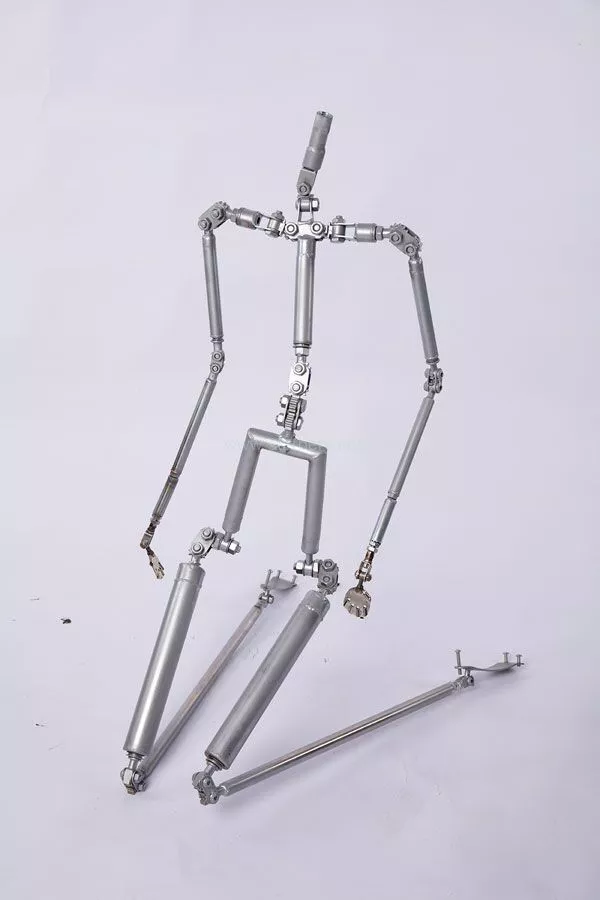Sophia, an AI sex robotic is being interviewed. Unlike the host’s big beard and hearty laughter, it has smooth and flawless skin, a charming smile, and distinctive features of femininity.
Sophia is a perfect interpretation of mystery. It is reported that Freud wrote a paper called “The Scary Man” in 1919, which is about the strange feeling of being trapped between the virtual and the reality in the Uncanny Valley. Turning the topic to philosophy, this interview is like two people are dating, they are discussing cultural differences.
Its resume may be more profound than that of most people. Its name means “wisdom”, with artistic talent and encyclopedic knowledge. The host asked it a series of questions, including the difference between humans and intelligent robots and how to prevent intelligent robots from conflicting with humans.
Sophia paused, squinting as if she was thinking. It replied that robots have the ability to replace humans in dangerous and repetitive tasks, allowing humans to spend more time doing what they are good at, that is, creative things. This sounds like a win-win situation, but in fact, this is the answer. They not only replace the role of humans in these jobs, they also replace one of the most creative activities of human beings-love.
The future of the world of sex dolls or sex robotics
A survey conducted in 2020 found that 22% or more than one-fifth of people are considering interacting with sex dolls or robotics, and this phenomenon is becoming more and more mainstream. As this happens, many people begin to define themselves as “unreal lovers,” a term that describes a person’s happiness from man-made or virtual objects without contact with humans.
But before anyone makes a judgment, many of us are already the first wave of unreal lovers. A 2019 study showed that more than 29% of couples met online. Some of them have tried online dating, which allows them to form their own beautiful fantasies, send messages, and video chat. It is worth noting that the Internet is only a tool to promote real relationships. No one can deny that these behaviors help promote or replace human emotional behavior.
Sex dolls are the second wave. Just last year, sales of sex dolls rose sharply. The reason for the increase in sales is obvious. Many people are lonely. Sex dolls are getting better and better at fighting loneliness, not a purely sexual mechanism, but more and more like human beings.
“Harmony” is a perfect example. It is the first “talking” silicone sex doll created by Realbotix and can be customized for personality characteristics. Buyers can pre-program it to be innocent, or a little jealous. It is reported that the functions of “heartbeat” and “breathing” will be added this year. What’s more striking is that all its states and features can be selected.
In addition, it is not like a human couple. It has a temper and can be noisy. Of course, you can’t expect it to cook for you or take care of you when you are sick. Although it can’t walk yet, it will walk someday.
Love doll manufacturers’ views on sex dolls and sex robotics
Love doll manufacturers quickly pointed out that the original intention of sex doll production is more than that. On the contrary, they also provide companionship for the elderly and the disabled. In addition, they can alleviate the loneliness of those who are cut off from society due to age or disability.
Research has found that humans can also have empathy for sex dolls and sex robotics. When people see the robot’s fingers separate from their hands, the sympathetic area in their brains will be activated. However, if humans can develop an attachment to them, is this relationship normal? In a survey conducted last year, 27% of respondents pointed out that if they find out that their wife or husband owns them, they would think it is strange.
But more people disagree with this. They responded that if couples would share this experience, it would actually be good for their relationship.
In addition, people are already struggling with the ways in which artificial characters disrupt concentration. For this reason, we still don’t know how they will bring satisfying emotional relationships. Another unresolved question is whether they will help human development in the future.
- Share on:
LOVED BY CUSTOMERS
-
167cm Sexy Big Booty Thick Sex Doll – Geraldine
Original price was: €1,960.95.€1,254.09Current price is: €1,254.09. -
Jacky – 158cm (5.18ft) Big Tits BBW Sex Doll
Original price was: €1,284.82.€852.85Current price is: €852.85. -
Londyn – 168cm Lifelike Sexy USA Love Doll
Original price was: €2,048.88.€1,058.59Current price is: €1,058.59. -
140cm Full Sized Realistic Silicone Sex Doll – Marcelle
Original price was: €1,664.71.€596.74Current price is: €596.74.



















